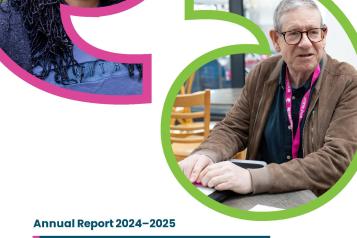Autistic people asked for their views on mental health services

Working in partnership with Wiltshire Service Users Network (WSUN), which runs the National Lottery funded Wiltshire Autism Hub, we want to learn more about the experiences of autistic people, aged 14 and over, who have accessed mental health support in Wiltshire in the last three years, and what they think could be better.
We would also like to find out the experiences of carers and relatives in helping the autistic person they care for to get this support.
We have launched two surveys which can be completed online, by phone, or on paper.
You can save and return to the online surveys at any time.
Survey for carers/relatives of autistic people
If you would like support to complete the survey, or would like a paper copy to be sent to you, please contact Healthwatch Wiltshire on 01225 434218 or info@healthwatchwiltshire.co.uk or WSUN on 01380 871800 or info@wsun.co.uk and we will arrange this for you.
Catharine Symington, Interim Manager of Healthwatch Wiltshire, said:
“We want to hear from autistic people, and their friends, relatives and carers, about their personal experiences of mental health services.
"Everything you share with us will be used to tell those who run services what could be improved or developed in the future. All feedback is confidential and anonymous."
Louise Rendle, CEO of Wiltshire Service Users' Network, said:
"We would love to hear about how mental health services in Wiltshire are working for you, what's going well and where you think things could be better.
“If you need any support completing our survey, please get in touch so we can help."
The surveys will close on Wednesday 14 June.
Find out more
Take a look at our previous work hearing the experiences of people with autism spectrum conditions when they attend health and care appointments.


